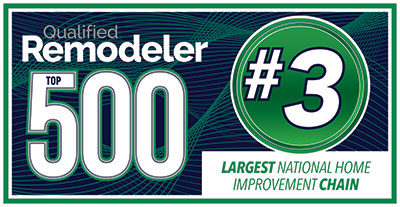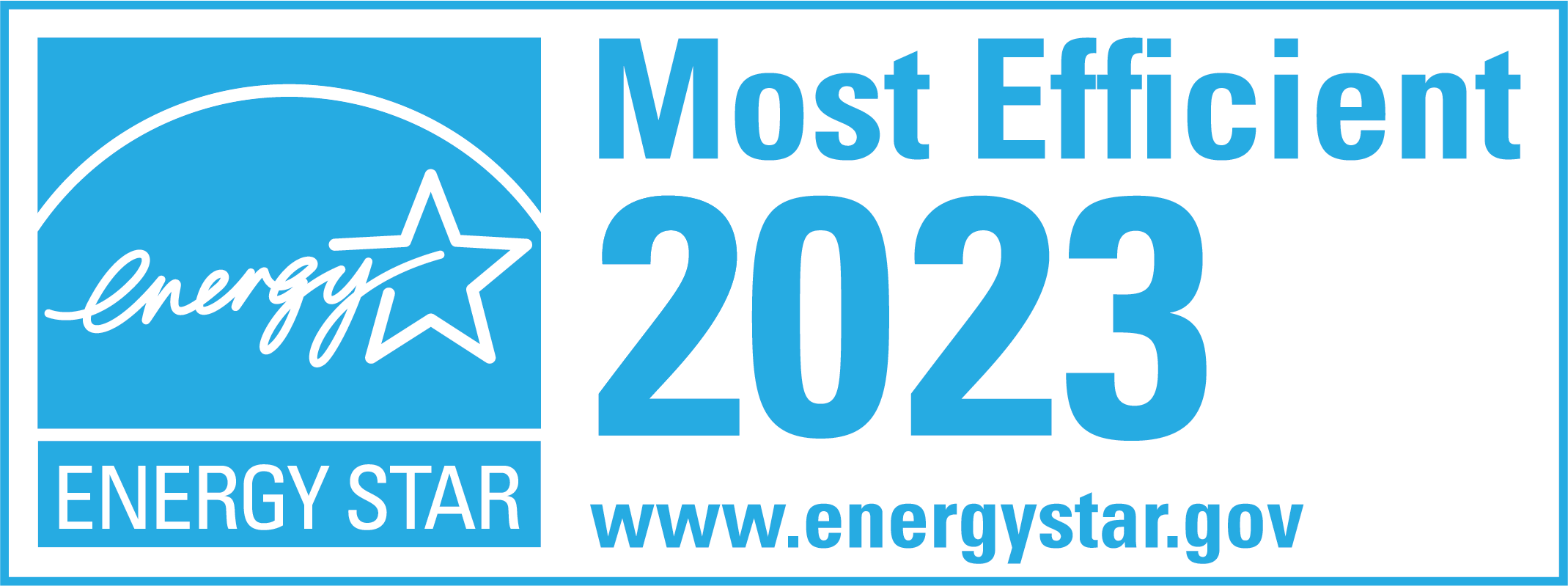Can You Replace Aluminum Windows with Vinyl Windows?
If you are considering replacing your windows, you may wonder if it’s possible to replace your old aluminum windows with newer vinyl ones. In this article, we will explore the key features of both types of windows, the process of window replacement, the pros and cons of aluminum and vinyl windows, the cost comparison, and the maintenance and durability of each. By the end of this article, you will better understand whether you can replace your aluminum windows with vinyl windows.
Understanding Aluminum and Vinyl Windows
Before diving into the specific details, let’s take a moment to understand the basic features of aluminum and vinyl windows. Aluminum windows, as the name suggests, are made of aluminum frames, whereas vinyl windows are made of PVC (polyvinyl chloride) frames.
Aluminum windows have been popular with many homeowners due to their strength, durability, and sleek appearance. Using aluminum frames provides a sturdy structure that can withstand extreme weather conditions, such as high winds and heavy rains. This makes them an excellent choice for homes in areas prone to severe weather.
Moreover, aluminum windows require minimal maintenance, making them a practical option for busy homeowners. The frames are resistant to rust and corrosion, ensuring they maintain their aesthetic appeal for years. With a simple cleaning routine, aluminum windows can continue to look as good as new.
Vinyl windows, on the other hand, have gained popularity in recent years due to their energy efficiency and versatility. Using PVC frames in vinyl windows provides excellent insulation properties, helping reduce heating and cooling costs. This energy efficiency benefits homeowners by lowering their utility bills and contributes to a more sustainable and environmentally friendly home.
Another advantage of vinyl windows is their versatility in style and color options. Homeowners can choose from various styles and colors to match their home’s aesthetic. Whether you prefer a classic look or a modern design, vinyl windows offer the flexibility to cater to your taste and complement your home’s overall appearance.
In addition to their energy efficiency and versatility, vinyl windows are known for their low maintenance requirements. The PVC frames are resistant to rot, peeling, and fading, ensuring that your windows retain their beauty without needing frequent upkeep.
Overall, aluminum and vinyl windows offer unique advantages catering to homeowner preferences. Whether you prioritize strength and durability or energy efficiency and customization options, there is a window type that suits your needs. By understanding the key features of aluminum and vinyl windows, you can make an informed decision when selecting the right windows for your home.
The Process of Replacing Windows
Now that you understand aluminum and vinyl windows, let’s discuss the window replacement process. Replacing windows involves several steps, which we will outline below.
Initial Steps for Window Replacement
The first step in replacing your windows is to assess your needs and budget. This involves considering factors such as the number of windows that need to be replaced and the specific features you are looking for in your new windows. Are you interested in energy-efficient windows? Do you want windows that provide better noise insulation? These are all important considerations that will help you make an informed decision.
Once you have determined your needs and budget, it’s time to accurately measure the existing window openings. This step is crucial to ensure a proper fit for the new windows. It’s recommended to measure each window opening multiple times to ensure accuracy. Taking precise measurements will help you avoid any issues during the installation process.
After measuring the window openings, you can select the type and style of windows that best suit your needs. Various options include single-hung, double-hung, casement, and sliding windows. Each type has its advantages and disadvantages, so it’s important to consider factors such as ventilation, ease of use, and aesthetics when making your decision.
Installation of Vinyl Windows
The installation process can begin if you have chosen to replace your aluminum windows with vinyl windows. Vinyl windows are popular due to their durability, energy efficiency, and low maintenance requirements. However, it is essential to hire experienced professionals to ensure a proper and secure installation.
Professional window installers will start by removing the old aluminum windows. This process requires care and precision to avoid damaging the surrounding structure. Once the old windows are removed, the installers will thoroughly clean the openings to ensure a clean and smooth surface for the new windows.
Next, the new vinyl windows will be carefully installed. The installers will ensure the windows are level, plumb, and square for a proper fit. They will use shims and insulation materials to secure the windows and prevent any air or water leaks. The installation process may also involve sealing the gaps between the windows and the surrounding frame to enhance energy efficiency.
After installing the windows, the installers will test their functionality to ensure they open, close, and lock properly. They will also inspect the windows for any visible defects or issues. If any problems are detected, the installers will address them promptly to ensure customer satisfaction.
In conclusion, the window replacement process involves careful planning, accurate measurements, and professional installation. By following these steps, you can ensure that your new windows not only enhance the aesthetics of your home but also provide improved energy efficiency and functionality.
Pros and Cons of Aluminum and Vinyl Windows
Now, let’s explore the advantages and disadvantages of aluminum and vinyl windows to help you make an informed decision.
Advantages of Aluminum Windows
One of the main advantages of aluminum windows is their durability. Aluminum is a strong material that can withstand harsh weather conditions, making it a suitable choice for homes in areas prone to extreme weather. Additionally, aluminum windows are low maintenance and can last many years with minimal upkeep.
Disadvantages of Aluminum Windows
Despite their strengths, aluminum windows do have some drawbacks. One major disadvantage is their poor insulation properties. Aluminum is highly conductive, meaning it can transfer heat and cold easily. This can result in energy loss and higher heating and cooling costs. Furthermore, aluminum windows typically cost more upfront than vinyl windows.
Advantages of Vinyl Windows
Vinyl windows offer several advantages that make them an attractive choice for homeowners. One of the primary advantages is their energy efficiency. Vinyl frames provide excellent insulation, reducing heat transfer and improving energy efficiency in the home. Additionally, vinyl windows are low maintenance and are resistant to rot, corrosion, and fading.
Disadvantages of Vinyl Windows
While vinyl windows have many benefits, they also have a few disadvantages. One drawback is their susceptibility to warping and bending under extreme temperatures. This can be a concern in areas with hot summers or cold winters. Additionally, some homeowners may find that the styles and colors of available vinyl windows may not match their aesthetic preferences.
Cost Comparison Between Aluminum and Vinyl Windows
Cost is an essential factor to consider when deciding between aluminum and vinyl windows. Let’s look at the cost comparison between the two options.
Cost of Aluminum Windows
Aluminum windows typically have a higher upfront cost compared to vinyl windows. However, they may offer a higher return on investment in durability and longevity.
Cost of Vinyl Windows
Vinyl windows are generally more cost-effective than aluminum windows. Their lower initial cost and energy efficiency benefits can result in long-term savings on heating and cooling expenses.
Maintenance and Durability of Aluminum and Vinyl Windows
When considering window replacement, it’s important to consider the maintenance and durability of different window materials.
Maintenance Requirements for Aluminum Windows
Aluminum windows require minimal maintenance. It is recommended to clean the frames and tracks periodically to remove dirt and debris. Additionally, lubricating the moving parts will help ensure smooth operation.
Maintenance Requirements for Vinyl Windows
Vinyl windows are also low maintenance. Regular cleaning with mild soap and water is usually sufficient to keep them looking their best. It’s important to avoid harsh cleaners or abrasive materials that can scratch or damage the vinyl frames.
Durability Comparison Between Aluminum and Vinyl Windows
In terms of durability, aluminum and vinyl windows are designed to last. Aluminum windows are known for their strength and resistance to weather elements, while vinyl windows are highly durable and resistant to rot and corrosion. Ultimately, both options can provide excellent longevity when properly cared for.
In conclusion, replacing aluminum windows with vinyl ones is possible and can offer several benefits. However, it’s crucial to consider your specific needs, budget, and aesthetic preferences when making this decision. By understanding the key features, pros and cons, cost comparison, and maintenance requirements of both aluminum and vinyl windows, you will be equipped to make an informed choice that suits your home and lifestyle.
Call us at 214-399-9592 to discuss window pricing and availability. Our replacement window services are limited to North Texas cities, from Irving and Dallas to Frisco and Rockwall.








